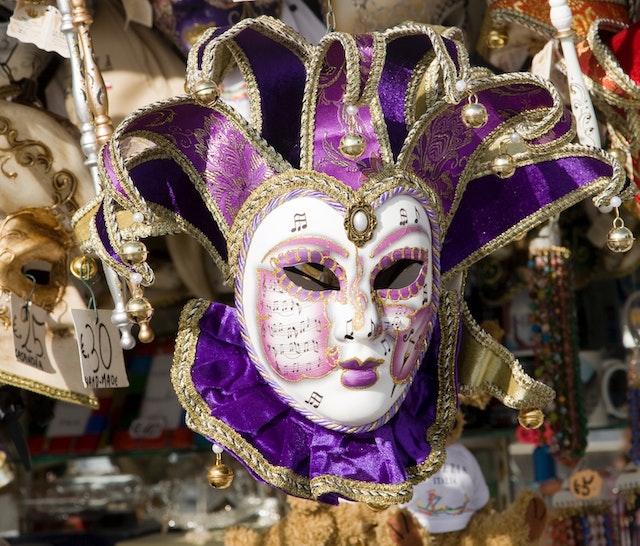
When did April Fools’ Day start? No one knows. Although, most theories have it connected to the change from the Julian calendar to the Gregorian.
The expression “April Fools’ Day” was first used in English in 1686. A British historian called John Aubrey first used it in his book “Remaines of Gentilisme and Judaisme”. This was a book about customs, traditions, and beliefs. However, he doesn’t really say what the day is, and he was not the first to come up with the idea of it.
A few theories attempt to connect April Fools’ Day with Roman festivals. The problem is that there is nothing more than coincidence to connect them. One good example is the Roman festival of Hilaria, which means “joyful” in Latin. It was celebrated in Rome on the March equinox, which is usually on the 25th of March. There were entertainments, games, and masquerades where people were allowed to pretend to be other people. This could be the origin of April Fools’, but it seems a pretty flimsy theory. Other than the closeness of the date, there isn’t much to go on.
A more common and likely theory is that April Fools’ Day is connected to the changing of the calendar. Julius Caesar had attempted to fix various problems with the calendar, and he had come up with the Julian calendar. He added an extra two months and tried to make it fit the solar year. He made January 1st the start of the year, but the Roman Empire encompassed a lot of different cultures, and people started the year on different dates. A large number of Christian cultures started the year on Easter, which was shortly after the Spring Equinox. However, Easter was tied to a lunar calendar, and it moved around a lot. Starting the year here was problematic and by the middle of the 16th century, the calendar was out of sync with the natural year and different people started it in different places.
Charles IX, the Holy Roman Emperor, decreed that January 1st should be the start of the year. In 1582, Pope Gregory passed a calendar reform and the Gregorian calendar was born, moving the start of the year officially to January 1st. The theory behind April Fools’ Day is that in France, if someone still celebrated the New Year at the end of March, they were made fun of and called “poison d’avril”, which meant “April Fish”. However, France spent almost a century converting to the new calendar, and there is no real connection to April 1st, so this theory is probably not correct.
On the other hand, the calendar change could be a reason for the tradition in the UK. The Gregorian calendar was introduced in Europe in 1582, but Britain refused to switch to it until 1752. When they did, they did it quickly, cutting two weeks out of September. Up to this point, Britain had started the new year on March 25th, and then had a week of celebrations, which ended on April 1st. It is possible that the idea of an April Fool could have appeared in the UK because some people might have forgotten the change and continued to celebrate the New Year on April 1st. However, if this is true, then why was the first English reference to it over 100 years before the calendar change? It could be possible that the tradition already existed and then the calendar change helped to cement it into what we have today.
One of the most likely theories for the origin of April Fools’ Day is that it was not one event in one country that started it, but a whole host of celebrations in different countries. The calendar year may begin on January 1st, but the farming year starts in March, with the spring equinox. That is the end of winter and the start of the growing season. The end of death and the beginning of life. That is the most likely reason why Easter is where it is, and a lot of cultures have a type of festival known as a renewal festival. These celebrate the renewal of life. In a lot of these festivals, it is not uncommon for people to play pranks on each other and servants were allowed to order masters around for a day. The social structure was switched around for a day, allowing people to let off steam, and possibly creating a more stable society. It is very likely that this kind of tradition simply continued and became the April Fools’ Day that we have today. And this is what I learned today.
Sources
http://hoaxes.org/af_database/permalink/origin_of_april_fools_day/
https://archive.org/details/remainesgentili01aubrgoog/page/n26/mode/2up?view=theater
https://en.wikipedia.org/wiki/Hilaria
https://time.com/4276140/april-fools-day-history/
https://www.history.com/topics/holidays/april-fools-day
https://en.wikipedia.org/wiki/April_Fools%27_Day
https://blogs.loc.gov/folklife/2016/03/april-fools/
https://www.dictionary.com/e/fool/
https://libguides.ctstatelibrary.org/hg/colonialresearch/calendar
